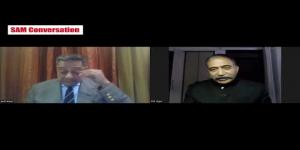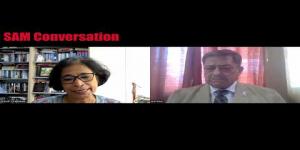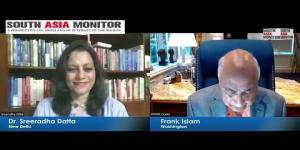PM Hasina sheds new light on Six Points, Bangladesh's freedom charter
In an article published by bdnews24.com marking the historic Six-Point Day, Prime Minister Sheikh Hasina has recalled why and how the demands raised and spearheaded by Bangabandhu Sheikh Mujibur Rahman in 1966 became Bangladesh’s charter of freedom

In an article published by bdnews24.com marking the historic Six-Point Day, Prime Minister Sheikh Hasina has recalled why and how the demands raised and spearheaded by Bangabandhu Sheikh Mujibur Rahman in 1966 became Bangladesh’s charter of freedom. The Father of the Nation presented the Six-Point charter of demand in a meeting of the opposition leaders in Lahore on Feb 5 that year, but it was turned down.
In the next few days, Bangabandhu explained to the media that the charter proposed to introduce independent rule to every province of the then Pakistan.
Weathering robust opposition from other political parties, the Awami League approved it and decided to spread the demand widely. It was put up to the people through leaflets, pamphlets and posters while the leaders reached out to the people in person to hammer the message home.
But why did Bangabandhu raise the demands for an independent provincial rule?
“The people of East Bengal or the then East Pakistan were left completely defenceless during the Indo-Pak war in 1965 as the region held no significance to the central government of Pakistan. East Bengal was left at the mercy of India,” Hasina wrote.
Citing a 1956 report published by influential daily The Dawn portraying the situation of Bengalis, Hasina said the highest rank held by Bengali officers in the army was lieutenant colonel and only two officers got the rank while dozens of West Pakistani officers had the ranks of general, brigadier and colonel.
West Pakistan always subjugated the Bengalis, she wrote, recalling the 1952 Language Movement, despite the fact that 56 percent people of Pakistan lived in East Bengal.
“West Pakistan was built on the loots from the earnings of East Pakistan. Unleashing oppression upon the Bangalees was the only task of their rulers,” Hasina wrote.
And the way the Six-Point charter won public support quickly is a rare instance in the world, she wrote. Bangabandhu was arrested eight times while rallying public support for the movement.
Eventually, the people stood together and made a general strike over the demand on Jun 7 a success, but at the cost of 11 lives lost in police firing.
As the Awami League launched the second phase of the movement, the then government’s oppression and persecution kept getting worse.
Hasina recalled how her mother and Bangabandhu’s wife Bangamata Sheikh Fazilatunnesa Mujib helped the leaders coordinate the movement with her instructions in secret meetings.
Hasina also remembered in the article how the movement was strengthened following the arrest of Bangabandhu in the Agartala Conspiracy Case on charges of sedition against him and 34 others in 1968.
Finally, the 1969 uprising and the 1970 elections, among other events, led to the unofficial declaration of independence by Bangabandhu in his historic March 7 speech in 1971.
He proclaimed independence officially just before the Liberation War began on Mar 26 following a non-cooperation movement called nine other than by himself and joined spontaneously by members of the public.
“After a nine-month war, Bengalis tasted the ultimate victory. The Bengalis got the status as a nation in the world, got the nation-state, an independent, sovereign Bangladesh.”
https://bdnews24.com/bangladesh/2020/06/07/hasina-sheds-new-light-on-six-points-bangladesh-s-freedom-charter
















Post a Comment